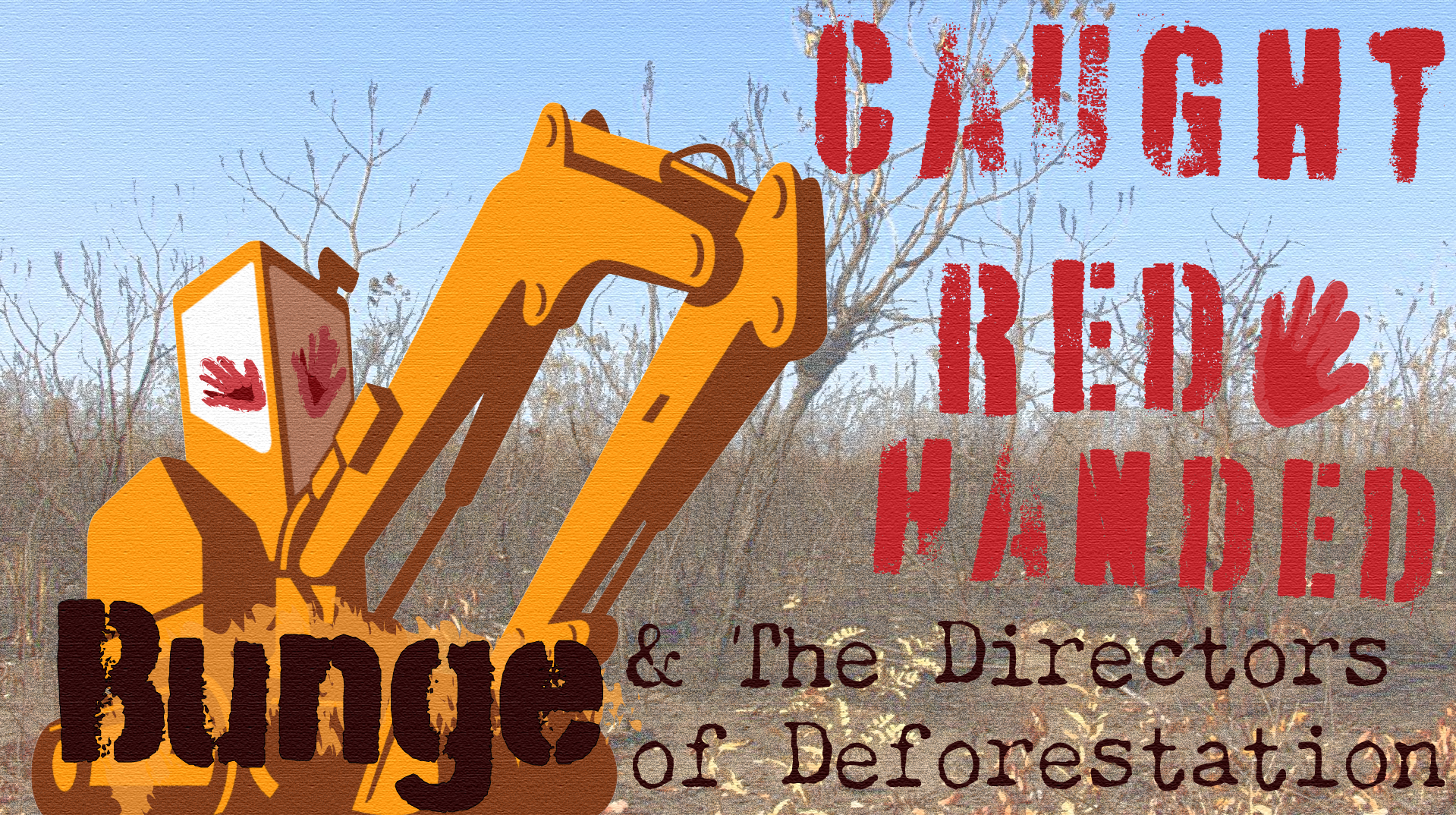The Brazilian Cerrado is known as the “birthplace of waters,” and is home to some of the greatest biodiversity in the world. This vast region is also home to many communities of peasants, indigenous peoples, and quilombolas (Afro-Brazilian rural communities).
But the relentless expansion of the soy industry is causing widespread ecosystem destruction and increasingly violent land conflicts between companies and local communities. And through state pension, investment, and retirement plans, most of us are directly invested in the Directors of Deforestation – including huge agribusiness corporations like Bunge.
Over the last several decades more than one-third of the total area of the Cerrado has been deforested and much of this converted to soy plantations. The US-based agribusiness Bunge Limited, one of the world’s largest industrial food companies, controls much of the trade, processing, and sale of soy in the region – making Bunge a leading driver of Cerrado deforestation, both through its own plantations and through its control of the soy trade.
In 2021 shareholders in Bunge voted to support a resolution pressing the company to halt soy-driven deforestation in the Cerrado region. The resolution passed by a resounding 98% – showing that shareholders want to see real change at the company. But we have yet to see the company take appropriate action. Bunge’s next annual shareholder meeting is on May 12, 2022.
But together, we are powerful: Our partners have produced a shareholder brief making the case for major shareholders in Bunge to VOTE NO to reinstate Bunge’s Board Chair for failing to address the urgency of the climate, deforestation and human rights crisis. Contact your state treasurer, comptroller, or public asset manager to vote against the company’s laggard Board of Directors at that meeting.
It’s critical that Treasurers and Comptrollers act to make sure that public money isn’t being used to drive deforestation and worsen the climate crisis. Every state and city has one and they are accountable to their constituents (that’s you!).
